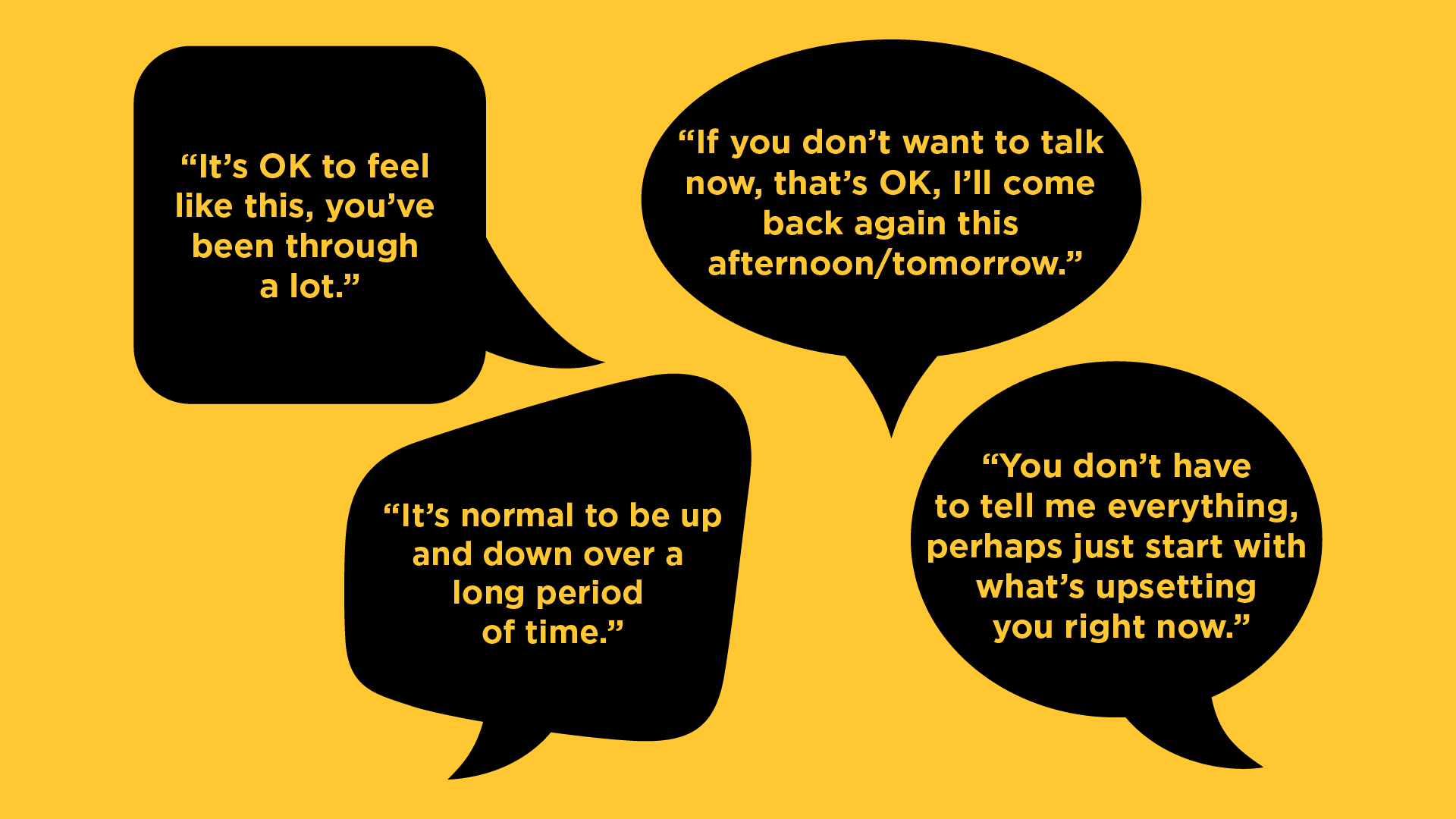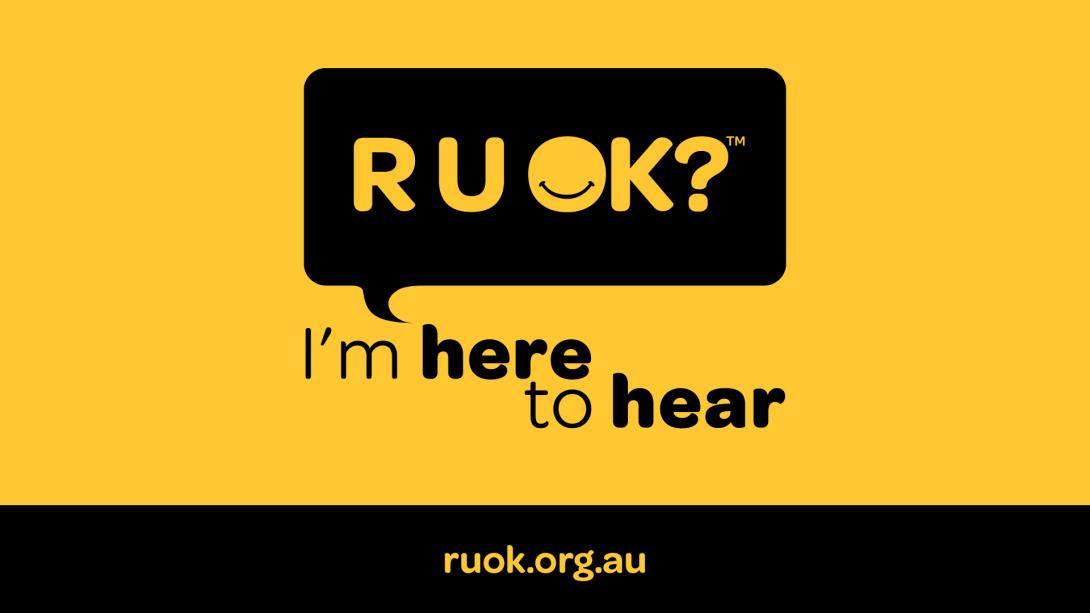How to ask R U OK? when disaster strikes
In times of emergency, there are many problems that need attention. On top of daily life stresses, during disasters people often have to deal with huge issues like finances, personal safety and temporary housing.
But how do you know when it’s getting too much for someone and they’re not doing so well mentally?
R U OK? In conjunction with the University of South Australia has created a Mateship Manual: How you can help someone who’s doing it tough because of a natural disaster or emergency. The Manual outlines four conversation steps on how you can support people impacted by disaster.
These four steps are:
- Ask R U OK?
- Listen with an open mind
- Encourage action
- Check in
R U OK recognises that sometimes asking isn’t easy at the best of times, let alone when someone has just experienced devastating loss as a result of a disaster. The Manual provides a range of tips and examples to help people better prepare for a conversation and also what to do if the conversation stalls or the person doesn’t have the words.
It also states that in the aftermath of a disaster, actions like lending a hand with the clean-up are a good way to support someone. Often people just want to feel heard, so listening is all that is needed, and it may not be about the disaster itself.
Recounting their story can cause some people to feel distressed and frustrated, particularly when they’ve had to share their disaster experience over and over again to first responders, support agencies, friends and family.
Consider “what they have been through?”
We spoke to Kim Borrowdale, Strategic Advisor for R U OK? who emphasised the importance of thinking about what the person who has just lost their home or livelihood to a bushfire, flood or COVID, is bringing to the table emotionally:
From the outside, it may seem like someone you know is reacting to an everyday stress disproportionately to your perception of the problem.
Maybe they are a bit short with work colleagues? Or having problems communicating with their family about daily logistics? It may be helpful to stop and think, “what have they been through?” that is an additional mental pressure.
There could be a whole range of emotions like big financial and home security issues as a result of the disaster that are going to be on top of everyday usual worries.
The valuable contribution of lived experience
Kim also talked about the development of the Manual in collaboration with the University of South Australia. She explained that the University team took a trauma informed approach to the project, combining their extensive research and clinical knowledge with lived experience insights. This included speaking with people who had personally experienced disasters such as the bushfires on Kangaroo Island.
Kim highlighted the value that bringing these lived experiences provided to inform the kind of support outlined in the Manual. She said that with disasters, peoples' reactions to a current situation may be impacted by previous disaster experiences, so to take that into consideration before you ask that all important question.
The Mateship Manual is not only a useful resource for everyday Australians but has also proven to be helpful for local service agencies. Kim talked about how in 2021, in parts of the Clarence Valley, an area that had gone through drought, bushfires, and then floods, government service providers and community organisations were using the manuals to help start the conversations as a non-confrontational way to ask more sensitive questions and get the right support to families and communities.
Kim also highlighted the importance of recognising the signs that someone needs professional support and tips on things to say when you check in, plus of course what to do if you are concerned with a person’s immediate safety.
‘Ask R U OK? No qualifications needed’
With disasters increasing in frequency and intensity, the unfortunate flow on effect is that more and more Australians will be facing the devastating effects of bushfires, floods and cyclones – and there will be a need to check in with this growing group and ask R U OK?
Kim reminds us that this year’s theme, 'Ask R U OK? No qualifications needed’ emphasises the role we can all play when it comes to supporting those in our world with life’s ups and downs:
If these past few years have shown us anything, it is that we are all friends and neighbours to someone in need.
You don’t have to be a clinician to support someone struggling as a result of a natural disaster.
Just being that person to ask how they’re doing and walk alongside them as they find what they need to be physically and emotionally safe is something we can all do.



